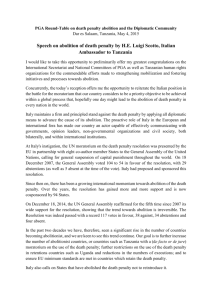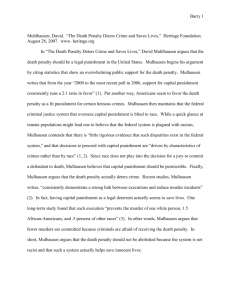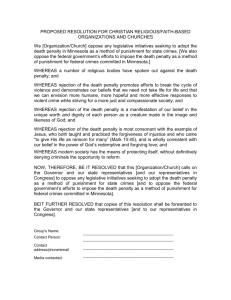Ten Reasons to Abolish the Death Penaly in South Sudan
advertisement
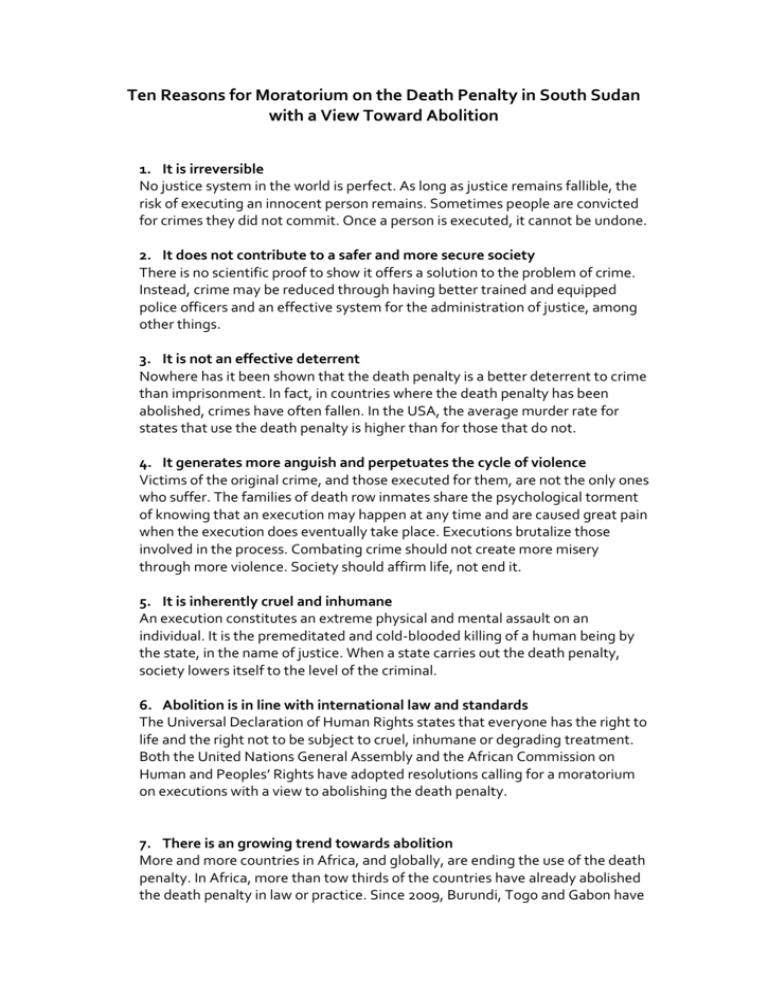
Ten Reasons for Moratorium on the Death Penalty in South Sudan with a View Toward Abolition 1. It is irreversible No justice system in the world is perfect. As long as justice remains fallible, the risk of executing an innocent person remains. Sometimes people are convicted for crimes they did not commit. Once a person is executed, it cannot be undone. 2. It does not contribute to a safer and more secure society There is no scientific proof to show it offers a solution to the problem of crime. Instead, crime may be reduced through having better trained and equipped police officers and an effective system for the administration of justice, among other things. 3. It is not an effective deterrent Nowhere has it been shown that the death penalty is a better deterrent to crime than imprisonment. In fact, in countries where the death penalty has been abolished, crimes have often fallen. In the USA, the average murder rate for states that use the death penalty is higher than for those that do not. 4. It generates more anguish and perpetuates the cycle of violence Victims of the original crime, and those executed for them, are not the only ones who suffer. The families of death row inmates share the psychological torment of knowing that an execution may happen at any time and are caused great pain when the execution does eventually take place. Executions brutalize those involved in the process. Combating crime should not create more misery through more violence. Society should affirm life, not end it. 5. It is inherently cruel and inhumane An execution constitutes an extreme physical and mental assault on an individual. It is the premeditated and cold-blooded killing of a human being by the state, in the name of justice. When a state carries out the death penalty, society lowers itself to the level of the criminal. 6. Abolition is in line with international law and standards The Universal Declaration of Human Rights states that everyone has the right to life and the right not to be subject to cruel, inhumane or degrading treatment. Both the United Nations General Assembly and the African Commission on Human and Peoples’ Rights have adopted resolutions calling for a moratorium on executions with a view to abolishing the death penalty. 7. There is an growing trend towards abolition More and more countries in Africa, and globally, are ending the use of the death penalty. In Africa, more than tow thirds of the countries have already abolished the death penalty in law or practice. Since 2009, Burundi, Togo and Gabon have abolished the death penalty for all crimes. The battle to abolish the death penalty is being won. South Sudan should join the winning side. 8. Many relatives of murder victims do not want the punishment of death The world-wide anti-death penalty movement contains the voices of many who have lost their loved ones to, or have been victims of violent crime, but for ethical or religious reasons do not want the death penalty imposed ‘in their name.’ 9. Many believe that the death penalty goes against their traditions or religious values Human rights are universal, indivisible and interdependent. They are based on many traditions that can be found in all civilizations. States which have abolished the death penalty stem from every region in the world and diverse legal systems, and are associated with every major religion. 10. It is a violation of the right to life Every human life has value, regardless of the crimes an individual may have committed. To execute an individual as punishment means only that another life is lost. /end





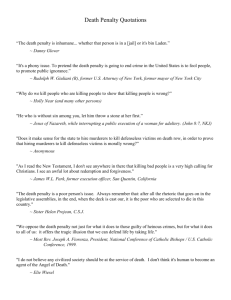
![Abolition of the Death Penalty []](http://s3.studylib.net/store/data/007408009_1-f15316418994e5ef549944bacdd39bf8-300x300.png)
